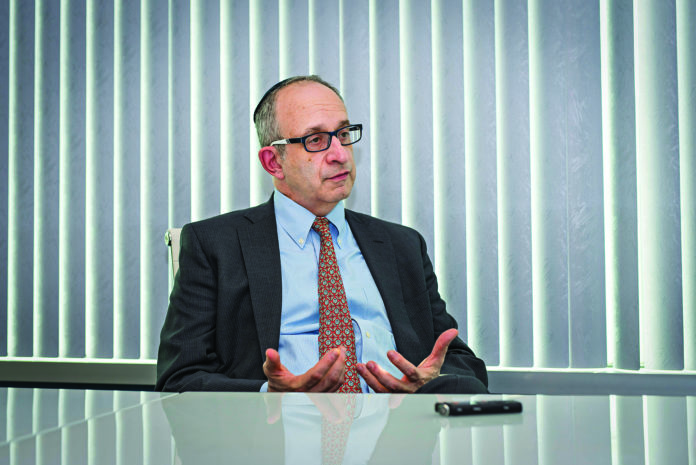In the coming weeks, hundreds of thousands of doses of the vaccine will be administered. In the US, that will primarily target first-line healthcare workers initially, and then the vaccine will be given to older people who are particularly threatened by the virus.
For many people, the rollout of the vaccine is a bright sign of hope. It heralds the coming of the end of the numerous restrictions that have gone into place because of the virus, imposed both by government and by personal decision. The idea of seeing elderly family members again or socializing freely is no longer just a dream.
But for others, new vaccines, developed quickly, are a source of concern. What sort of side effects might they have? How well can we trust their safety and efficacy? Opinion polls have shown that a large percentage of the American public is hesitant about taking the vaccine, even with its touted benefits.
To better understand how the Jewish community should think about the eventual opportunities to vaccinate, I spoke with Dr. Alan Kadish, the president of the Touro College and University System. Dr. Kadish—a graduate of Albert Einstein College of Medicine at Yeshiva University, Brigham and Women’s Hospital, and Hospital of the University of Pennsylvania—served as a professor of medicine, the senior associate chief of the cardiology division, and the director of the cardiovascular clinical trials unit during his 19 years at Northwestern University.
At Touro, he has led an educational institution that includes two colleges of pharmacy, four colleges of medicine, and graduate schools and programs in health sciences. As both a longtime participant in and observer of the Jewish community, a medical expert, and the leader of perhaps the largest Jewish-backed medical education institution in the US, he has a unique perspective on how the community may experience the vaccine rollout.
New York State has just begun vaccinating people against COVID-19. Should we feel comfortable about taking a vaccine that’s brand new?
Every decision in medicine has to be looked at in terms of its risk-to-benefit ratio. Can we be absolutely sure there won’t be rare side effects that weren’t uncovered during the clinical trials? We can’t. But we know that the Pfizer vaccine was tested on over 40,000 patients, and we’ve seen extremely limited serious side effects. We also know how many people in the community have died from COVID. So while no one can guarantee that there won’t be unanticipated side effects, the risk-to-benefit ratio is clearly in favor of getting the vaccine as soon as possible.
Touro and the New York Medical College have been running COVID seminars since January. Our first one was on January 31 and the last one took place a week and a half ago. The clear consensus was to take the vaccine.




















